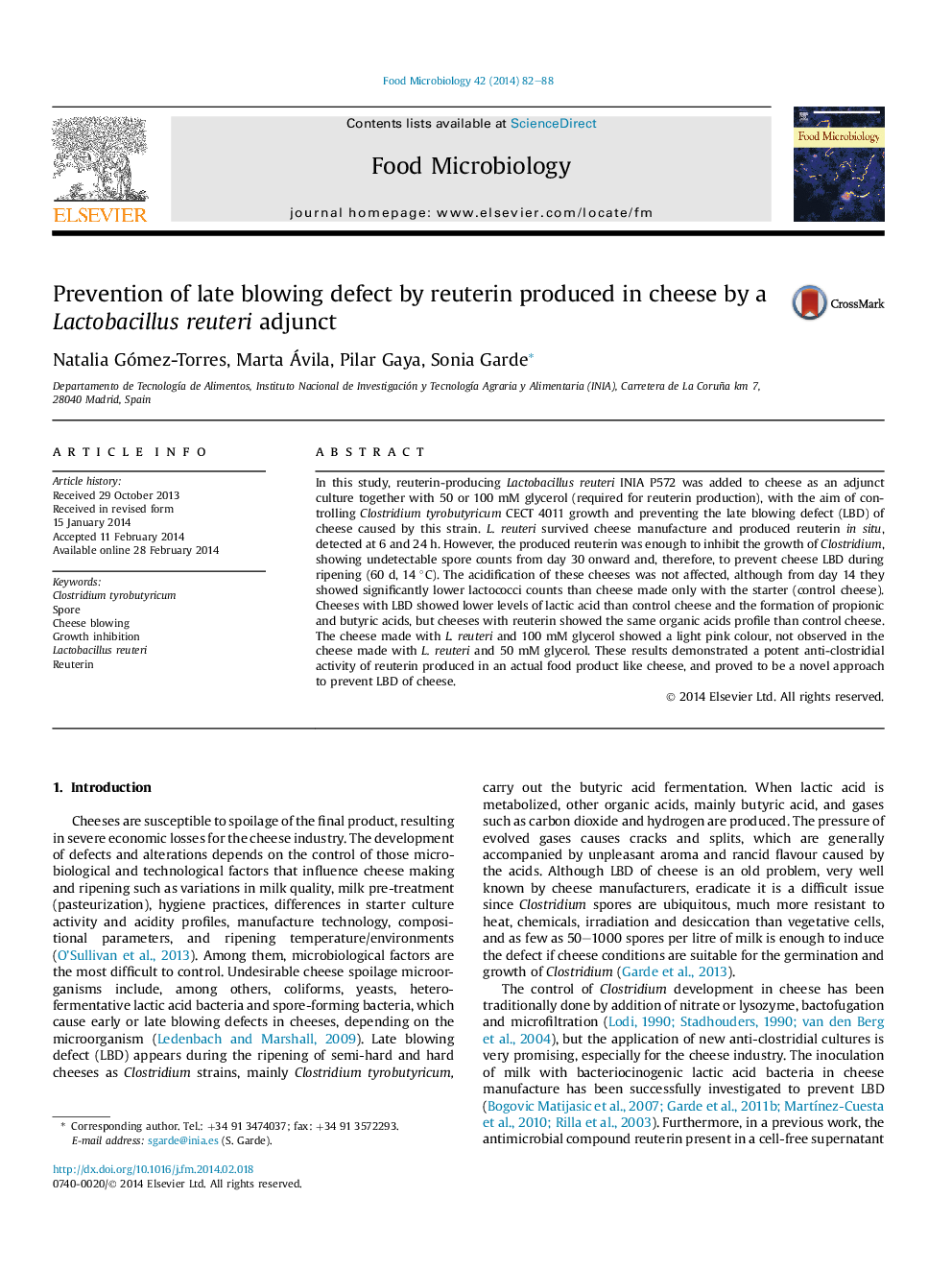| Article ID | Journal | Published Year | Pages | File Type |
|---|---|---|---|---|
| 4362885 | Food Microbiology | 2014 | 7 Pages |
•Clostridium tyrobutyricum CECT 4011 caused late blowing defect in cheese.•Reuterin-producing Lactobacillus reuteri was used as adjunct plus glycerol to control cheese blowing.•L. reuteri survived cheese manufacture and produced reuterin in situ.•Reuterin inhibited Clostridium growth and prevented cheese blowing.•Cheeses with L. reuteri and glycerol showed the same organic acid profile than control cheese.
In this study, reuterin-producing Lactobacillus reuteri INIA P572 was added to cheese as an adjunct culture together with 50 or 100 mM glycerol (required for reuterin production), with the aim of controlling Clostridium tyrobutyricum CECT 4011 growth and preventing the late blowing defect (LBD) of cheese caused by this strain. L. reuteri survived cheese manufacture and produced reuterin in situ, detected at 6 and 24 h. However, the produced reuterin was enough to inhibit the growth of Clostridium, showing undetectable spore counts from day 30 onward and, therefore, to prevent cheese LBD during ripening (60 d, 14 °C). The acidification of these cheeses was not affected, although from day 14 they showed significantly lower lactococci counts than cheese made only with the starter (control cheese). Cheeses with LBD showed lower levels of lactic acid than control cheese and the formation of propionic and butyric acids, but cheeses with reuterin showed the same organic acids profile than control cheese. The cheese made with L. reuteri and 100 mM glycerol showed a light pink colour, not observed in the cheese made with L. reuteri and 50 mM glycerol. These results demonstrated a potent anti-clostridial activity of reuterin produced in an actual food product like cheese, and proved to be a novel approach to prevent LBD of cheese.
